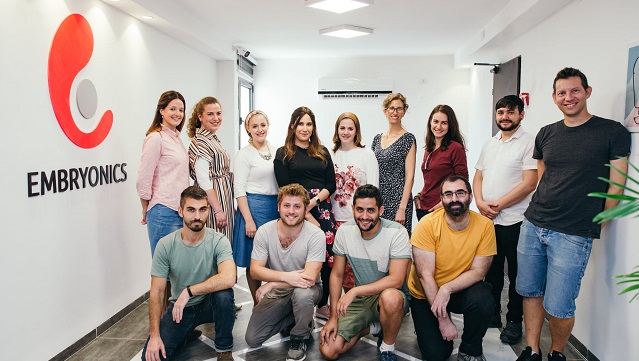Israel’s Embryonics Uses AI for Fertility Treatments
Every implant is expensive so getting it right saves people a fortune.
Embryonics, an Israeli startup, is developing and applying solutions which utilize artificial intelligence to improve the success rates of fertility treatments. This could lead to generations of AI babies.
No, AI babies does not mean generations of cyborg children like the Borg from Star Trek or the Cylons from Battlestar Galactica. It means babies conceived with the aid of artificial intelligence. This will help save time and money in the in vitro fertilization process.
Failure to conceive when wanting a child is probably the most heart breaking problem a woman can have. And the longer that it takes to have a child the harder it becomes as age is a significant factor in a woman’s ability to conceive and carry a child to term. In if she is implanted with a donor embryo, there may be other complications in carrying the baby which are more prevalent as one ages.
Embryonics wants to do something about these problems.
The company was founded in 2018 by its CEO Dr.Yael Gold-Zamir. Zamir already broke with convention by becoming a doctor as she is from Israel’s ultra-orthodox (Haredi) community. In the Haredi world women usually do not become professionals and are discouraged from even pursuing a university education. So Dr. Gold-Zamir has made two moves in breaking the “glass ceiling,” becoming a Haredi woman doctor and now becoming a Haredi woman entrepreneur.
–
[embedded content]
The biotechnology firm declares that it is bringing novel artificial intelligence (AI) solutions to the world of in vitro fertilization (IVF) . Embryonics states that it is committed to addressing the reasons behind the plateauing of success rates for IVF. The company designs deep learning neural networks to improve embryo selection, genetic analysis and patient schematics, utilizing Big Data to service those in need. By improving and simplifying the process it hopes to make IVF safer, cheaper, more accessible and above all more successful.
According to Tech Crunch the in vitro fertilization market is expected to double from its amount of about $18.3 billion in 2019 over the next five years. But the costs are still very high, ranging from $10,000 to $15,000 for IVF per cycle in the U.S.
Dr.Yael Gold-Zamir explained that today most decisions made in the IVF process tend to be subjective. They are based largely on an individual doctor’s experience and intuition and this differs based on location. Embryonics, however, makes IVF a data-driven process which it states improves the quality of the process as well as the chances of success. Its solutions include selecting eggs for preservation, selecting the healthy embryos and soon also outlining a customized hormonal treatment protocol for each patient.
“This is a real revolution. The success rates of fertility treatments are very low,” Dr. Gold-Zamir told Geektime. “We are going to replace IVF-Babies with AI-Babies – which will make the arduous journey to the baby less expensive, at least long and at least painful and dangerous for millions of couples around the world.”
Someday, explained Dr. Gold-Zamir, algorithms and computer software will replace the guess work and free up a doctor’s time for the actual care of patients. Doctors will “divert their time from technical observation to patient care. But this is in the more distant future,” she said. “Now all the tools are used as aids that improve and upgrade the quality of work of radiologists and doctors by tools that have learned about millions of samples from diverse sources – an amount of data that is not possible for human processing.”





